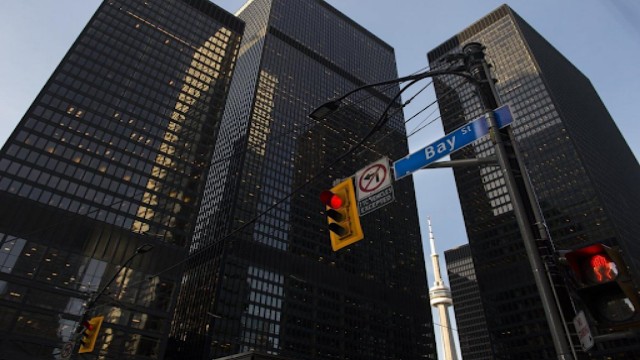
Economists predict Canada’s inflation rate for March will be 2.6%, according to The Canadian Press.
Canada’s inflation is once again in the spotlight as economists predict the annual rate for March will remain steady at 2.6%, the same as in February. This figure is set to be confirmed when the official data is released on Tuesday.
Several economic factors are influencing the numbers. A weaker Canadian dollar has pushed up the cost of imported goods. Food prices continue to rise, and the early stages of new trade tariffs are starting to show their effect, said Randall Bartlett, deputy chief economist at Desjardins Group.
“We're still seeing persistent food inflation and signs that core inflation hasn’t cooled yet,” Bartlett noted.
Despite trade tensions putting upward pressure on some costs, they’ve also led to weaker confidence in the economy and softer commodity prices in other areas. A key example is crude oil. In March, it traded at less than US$70 per barrel—significantly lower than the US$80 range seen during the same month last year.
Bartlett believes the impact of tariffs on March inflation will be mild. Although Canada introduced $30 billion in counter-tariffs against U.S. goods at the start of March, and another $30 billion mid-month in response to American metal tariffs, a larger wave of planned retaliatory tariffs has been delayed. The U.S. suspended additional tariff threats, avoiding the full $125 billion in counter-tariffs Canada had prepared.
This pause in trade action means less pressure on prices than initially feared. Bartlett says this delay may lead him to lower his inflation forecasts for the rest of the year—though he expects inflation to stay above what the Bank of Canada is comfortable with.
The Bank of Canada is set to announce its next interest rate decision on Wednesday. It faces a tough balancing act, especially with a federal election underway, said BMO chief economist Douglas Porter.
Porter estimates the March inflation rate might come in at 2.7%. “It won’t be great,” he said, but he also expects things will cool off in April. Why? Several reasons: the end of the carbon tax in April, lower crude oil prices, and a slightly stronger Canadian dollar—all of which could help ease price growth.
Still, one concern is consumer expectations. According to a recent Bank of Canada survey, short-term inflation expectations among consumers rose last quarter—the first increase since 2022. This matters because if people expect prices to keep rising, it can influence spending and wage demands, adding more fuel to inflation.
Because of this, Bartlett expects the central bank will hold off on any immediate rate cuts. He said the Bank will also likely want to “keep some powder dry” in case the economic outlook worsens.
On a brighter note, cooling housing trends—such as falling rents and slower home sales—may help offset rising prices in other sectors. Interest rate cuts already made should also reduce mortgage stress and help ease inflation pressure slightly.















